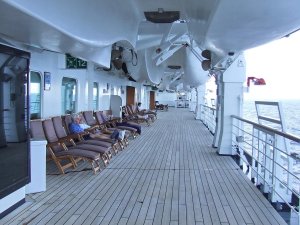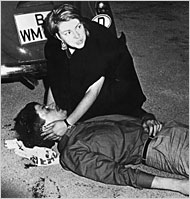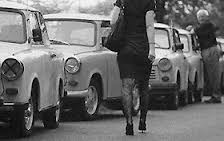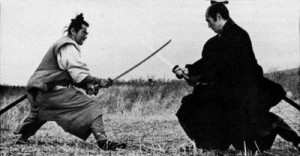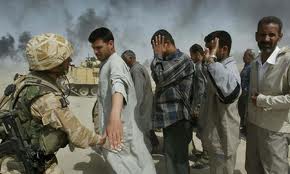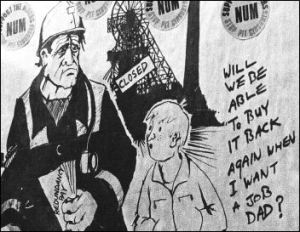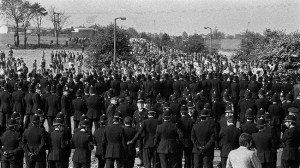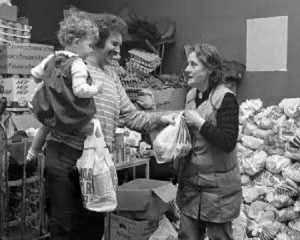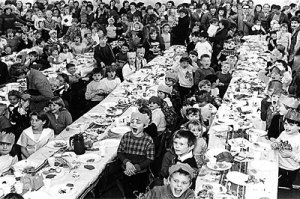Friday night, (the 13th of course) and the Captain has already warned in his midday address (position, distanced travelled since last port and weather) of the same day that we will be passing 200 miles from the epicentre of Tropical Cyclone Nanouk in the Indian Ocean. Sounds a long way away? Storm in Leeds, calm in London? Well, in tropical storm terms it is not, because the centrifuge effect of a cyclone pulls in wind from a circle of up to three hundred miles and we are going to be a hundred miles within that circle– just to let you know. “The ship may move a little,” the Captain has said. But you know, and a sense of foreboding in your stomach confirms this prescience, that he is combining English understatement with a captain’s duty not to alarm passengers, or disturb their daily round of eating, sleeping, playing carpet bowls and emptying their bowels – the latter, while making every effort not to spread the current “minor” (in the captain’s words, again) outbreak of the novo virus.
All well and good as we cross the Gulf of Oman, and even when we enter (at about 4 p.m.) the Arabian Sea (a north eastern subsection of the Indian Ocean) movement is tolerable. Gradually the swell builds, but calmly and methodically. Repeating valleys form and we climb up the side of one, slip down the side of the next. “Five metre swell to be expected,” the captain had said, and this is all right if you have good ocean legs and don’t mind doing your daily deck walk in alternating moments of uphill and downhill with the horizon appearing and disappearing completely at either end of the ship. One senses that the swell, the sea, is still benign even if the ship is moving like a seesaw with a fifteen foot drop at either end. If this is what the captain means by “the ship may move a little”, we (the collective ‘we’ of a herd of cruise passengers) can live and sleep with it and still stuff ourselves.
So, in this womblike state of undulation, we drift off to bed around ten o’clock – except for those two or three passengers under sixty, who wish to gyrate (while also undulating fifteen feet up and down) in the disco (still called THAT here) — and are rocked to sleep. Up, down. Mm! Good night.
And then: boom!
Horribly awake. Alarm bells ringing at full volume in mind and body.
‘What was THAT?!’
There it is again: Boom!
I – the collective ‘we’ cancelled, because survival is a ‘me’ thing – am NOT a happy embryo now.
That fifteen foot, five metre undulation, or slow moving see saw, has become a jagged fifteen foot drop into which the bow of the boat (where my cabin is positioned on the lowest passenger deck) is smashing (with a noise that sounds like the hull MUST have cracked open) every fifteen seconds.
I try earplugs, but the boom blasts straight through to the fear centre of my psyche.
Again: Boom! Well, ker-boom, shudder, shake actually! Followed by a fifteen foot stomach-losing lift that you know is going to be followed by a fifteen foot stomach turning drop and another – wait for it, tense, suppress scream –ker- boom, shudder, shake. The shudder is me and the ship, whose whole frame shudders back and forth and then tries to shrug of the shudder with an even more alarming shake. Movie cataclysms, even with wrap around sound and 3D, have nothing on this.
We (or is it just I?) have forgotten about the gale force winds mentioned en passant by the captain. These have now whipped up the undulations into jagged, irregular and very angry fifteen foot waves, though which the ship has to ride. No, ‘ride’ sounds too benign. Fifteen foot jagged waves within and on top of which the fourteen story, ocean-going liner is tossed about like a rubber ball: fifteen foot up in the air (about two and a half storeys) and then, down, down, down to your doom — ker-boom: a fifteen foot drop to the ground below with no more gentle valley side to ease the drop. And it is NOT ground. It is water with a depth of two and a half thousand metres: the Captain always tells us the depth beneath in his noonday message – so we don’t forget the Peril of those on the Sea.
Earplugs fail.
Go-with-the-flow – a sea-goer’s standby – fails miserably, too, and produces nausea. The bed is moving too much, the noise too loud, alarming and apocalyptic to be ignored.
I check the time. 2.30 a.m. The bleakest hour of the night. The fact that it is now Saturday 14th June is little consolation, as the ominous influence of a Friday 13th must, I know, extend until dawn.
I sit up and, like an off duty soldier in the trenches, prepare myself for the next boom. I try a homeopathic, anti-panic remedy Aconite and then negate it with an allopathic 2 mg diazepam.
Five minutes and twenty booms later, still no relief.
So for the first time in my ocean-going career – I am a writer who finds he writes best on a cruise ship, though this may change – I get up in the middle of the night. And that is no easy feat in a storm. I stumble across the cabin trying to put on shorts and T-shirt mid drop and socks and shoes, mid-rise. Boom! I fall back on the bed, get up and finally make it to the door.
I lurch along the silent corridor of closed cabin doors with inmates silently sweating through their own gloom and doom of the boom scenarios. Or perhaps going much further with their allopathic sleeping pills than I did with my diazepam, deciding to black out and hope for the best rather than face the reality of this First World War at sea.
On to the atrium (cruise ships use hotel terminology), normally a hub of activity but now deserted apart from one member of staff. I make human contact with a woman from Serbia on duty behind the hotel style reception desk. We exchange the ‘moving a bit’ understatement (probably not a natural reaction to rough sea for a Serb, but British sang-froid and Aussie understatement is mandatory) and I tell her about the booms, which thank God are not so audible here in the centre of the ship. Would I like a technician to come and check the noise? she asks. Or a complimentary set of earplugs? I smile and shake my head and then add: If the technician can calm the sea, yes, and if the earplugs can soothe my panicked soul, yes, otherwise no point. This is too metaphysical for a Serb – or anyone else – at 2 a.m. in a storm at sea, so she makes a note of my observation and I stagger off.
The open access restaurant on deck fourteen is my next goal. I start walking the fourteen flights of stairs – a fitness gambit on good days — but the movement is too much and my body says it is the middle of the night. I press a lift button and hear the clanking and crashing of the lift cables far above – almost as bad as the booms, because it sounds like the ship IS falling apart, right now.
The lift sways and lurches up fourteen floors and I emerge. But here the sway and judder is worse though the sea-level noise reduced to a distant thud. I head for the restaurant. No longer open I know, but with a self-service tea and coffee facility available before breakfast starts at 5 a.m.
The restaurant area is moving like an off centre Ferris wheel about to lose its balance and I only just make to the teabags. Two Filipino lads are cleaning the place, but let me help myself. Their usual cheery countenances are grim and we do not even bother going through the ‘moving a bit’ ritual.
And then an unwitting saviour arrives – the first fellow passenger I have seen since leaving my cabin. A rugged, no nonsense sort of man with a pot belly, leathery skin and overfed, expressionless face.
‘How you doing, mate?’ he asks, in a strong Oz accent. ‘All good?’
I know Oz greeting rituals well enough to reply ritually and 100% untruthfully as we crash into each other on the way down to a sea-level boom and fourteenth floor level thud, shudder and shake:
‘All good.’
‘Moving a bit,’ he adds.
‘Yes,’ I say. ‘Moving a bit.’
He helps himself to coffee. I go for mint tea to calm the angst – no, terror – of a storm at sea.
‘Couldn’t sleep?’ I ask, hoping to share my terror in a therapeutic, co-counselling sort of way.
‘Nah, sleeping fine, mate. Just got up to watch the World Cup game. Australia versus Chile.’
I swallowed my amazement and nodded.
This man had woken himself on purpose having been fast asleep despite the ker-booms and fifteen foot drops and rises to watch a football game? Was I imagining this storm? Had I over reacted?
BOOM! A ker-boom of nuclear proportions, so loud it made it to the fourteenth floor in one, undiluted mega-decibel and sent the ship shuddering and shaking in every direction at once.
‘Moving a bit,’ the man repeated, just a hint of nervousness behind the ‘all good’ façade.
He set off with his coffee. I followed him on the basis of ‘any port of call in a storm is better than none’ – for me, at that moment, this man was a haven of calm verging on the psychotic.
We went out onto the open deck, also on the fourteenth floor, where a giant TV screen dominates the swimming pools and deck lounging area. And there, the World Cup match between Australia and Chile was being broadcast live at full volume to beat the howling wind and driving rain. The image shook and shuddered with the ship, but as we were all shaking and shuddering with the ship this did not seem to matter to my haven mate, who took a seat and no further notice of me.
I watched for a while, the inane observations of the two football commentators briefly leading me to believe that I was at home watching the match. But after a first Chilean goal and a groan from my haven mate, I could take the swaying and lurching and distant thuds of valley-bottom hits no more.
I headed back to the fifth floor, past the Serbian receptionist – who waved at this, in his imagination, already drowning man – and on along the empty, swaying creaking corridors to the back of the ship.
Here I found a final surreal sight and sound. In the area where professional videos and photos of the trip are sold at outrageous prices, a promo film was playing on half a dozen screens to no one: happy music, soft-sell voiceover, images of calm blue seas in Thailand – and not a soul to watch or listen.
Was anyone looking after the ship? Did anyone know or care that thud by thud and boom by boom the sea was shaking our boat to bits? Or would we go down with the promo video – and the World Cup on deck fourteen – still playing at full volume and everyone else asleep in their cabins.
It didn’t bare thinking about, so I curled up in a chair in the tiny library next to the video counter, closed my eyes and prepared for the worst. At least at the back of the ship the booms and thuds were almost inaudible, even if the shuddering and straining and creaking and cracking of everything around and about me seemed even louder.
A storm at sea is an all-embracing event.
I did not sleep and the storm continued until the afternoon. But after 5 a.m., I was no longer alone, lurching and shaking as one of the herd with countless ‘Moving a bit’ exchanges to ease the angst and anaesthetize the reality of imminent shipwreck. I hope the Aussie man with the nerves of steel enjoyed his game – despite the storm, and despite the fact that Australia lost three goals to one.




